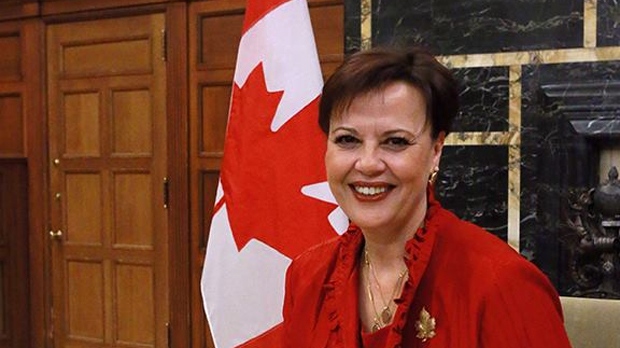Alexandra Mendes: “One would think that in a country such as Canada, gender equality would be a given”
Although substantial progress has been made, there is still much to be done – this summarizes our conversation with Alexandra Mendes, Member of Parliament for the riding of Brossard—Saint-Lambert. In our interview she highlights the work carried out in Canada to narrow the gap, but also recognizes the fragility of women with regard to equality rights and opportunities.
Alexandra also tells us about legislative progress that tries to combat the societal stereotypes that women are weaker than their male counterparts.

Milénio Stadium: A recent study by journalists at The Globe and Mail shows, very clearly, that in Canada there are still very significant differences between men and women. Both in terms of hierarchical positioning and in terms of salary. As a woman, how do you analyze the permanence of this fact in Canadian society?
Alexandra Mendes: Let me begin by saying that I am proud to have been elected as a Member of Parliament. My constituents have placed a great deal of trust in me to represent them in Ottawa. I have won three hard-fought elections against mainly male-dominated ballots.
The issue of gender equality is one that I live every day. It is no surprise to me to see that both the wage gap and hierarchical positioning continues to play out before us in 2021. There has been some progress over the years, but these accomplishments have are hardly complete.
One would think that in a country such as Canada, gender equality would be a given. Er are a progressive, society, and indeed, many gains have been entrenched both in law and in practice. However, the struggles are far from over, and the pandemic has put paid to many of the past two decades’ advancements.
MS: In practical terms, what has been done to promote greater gender equality in the country?
AM: Over the past year, the government has worked hard to support greater gender parity at the federal level. From appointing the first gender-balanced federal Cabinet to unparalleled investments in women and girls, we continue to make progress in advancing gender equality in Canada and around the world. It is proven that when women succeed, Canada’s economy thrives. That’s why the Government is:
- increasing the number of women in STEM, the skilled trades, and other well-paying fields;
- investing in women-led businesses to provide women entrepreneurs with access to financing, talent, networks and expertise;
- launching a new parental sharing benefit to support a more equitable distribution of child care within the home;
- taking action to address the gender wage gap through pay transparency measures in the federally regulated sector and moving forward with a proactive pay equity regime;
- including a gender statement in the federal budget to examine the gender impact of budget measures;
- strengthening the Canada Child Benefit so that it continues to help families that need it most and supporting affordable child care across Canada;
- investing $40 billion on a National Housing Strategy to help reduce homelessness and improve housing for Canadians in need, with at least 25% supporting women, girls and their families.
There is still much work to be done, but these targeted investments send a strong signal about the need to close the gender gap.
MS: There are some who argue that, in many circumstances, it is women themselves who raise barriers to the consolidation of ever greater gender equality. What do you think about this?
AM: This question speaks volume to the real problem before us. Instead of recognizing and admitting that systematic changes are needed, we once again place the blame squarely on women’s shoulders. Women are not the ones raising barriers; male-dominated systems are responsible for the ongoing belief that it falls on women to change the process. From our media outlets to our educational system, gender beliefs remain firmly entrenched regardless of the platitudes of equality and acceptance that we hear.
These deep-rooted beliefs remain unchanged. Arguments about gender equality that we heard about in the 60s and 70s still resonate today.
Women are not holding themselves back; systems and centuries’-old brain-washing perpetuate this wishful-thinking that a woman’s place is at home. Well, so is every other member of the family! Obviously, there are physiological reasons why women are essential to a family’s growth and emotional security. But men have as important a role, and once that becomes the norm rather than the exception, I believe we will finally see some lasting change.
MS: The pandemic has greatly affected the workforce. In your perspective, how have women been (or not) harmed the most?
AM: I recognize the profound and disproportionate toll this pandemic has taken on women. Many women have had to make the difficult choice between their work and their family. No person in Canada should have to choose between either, but this is what the real world looks like to this day. This incredibly difficult decision has created what some are calling a she-session.
It is no surprise that women have been harder hit in the workforce than their male counterparts. Study after study has highlighted the difficulties women face to juggle a household and their jobs, mostly because men almost always put their careers first.
I am fortunate that I have not had to choose between family and work. However, many of my constituents have had to make that decision. This she-session has only widened the gender equality gap.
I hope that once we begin the rebuilding process after the pandemic, the government’s initiatives to address this reality will start to heal us from such lost ground. From programming to investment, all government levels and the private sector must ensure that gender equality plays a central part in our future.








Redes Sociais - Comentários